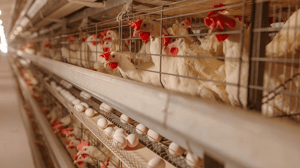Albertsons posts 7.9% identical-sales gain in third quarterAlbertsons posts 7.9% identical-sales gain in third quarter
Supermarket giant upholds strong growth pace since unveiling of merger deal with Kroger.

Albertsons Cos. turned in another strong quarter since announcing its $24.6 billion merger deal with The Kroger Co., with adjusted earnings per share for the fiscal 2022 third quarter topping Wall Street’s forecast.
For the 12-week second quarter ended Dec. 3, net sales and other revenue totaled $18.15 billion, up 8.5% from $16.73 billion in the comparable period a year earlier, Albertsons reported Tuesday. The Boise, Idaho-based food-and-drug retailer said the uptick reflected a 7.9% gain in identical sales and higher gasoline sales, boosted in large part by retail price inflation.
The net and identical sales increases built on growth of 8.6% and 5.2%, respectively, in the fiscal 2021 third quarter and continued the momentum from gains of 8.6% in net sales and 7.4% in identical sales in the 2022 second quarter.
Digital sales jumped 33% year over year in Q3, compared with 9% growth in the 2021 quarter and maintaining the pace from a 36% increase in Q2 2022. The customer loyalty program also grew 16% to 33 million members in Q3, Albertsons noted.
On Tuesday, Albertsons didn’t hold its usual quarterly call with analysts because of the pending merger with Kroger, which was announced in mid-October. Analysts have indicated that, for the time being, the merger will color their valuations and ratings.
Albertsons also reported that a planned $3.92 billion special dividend, announced with the merger deal, remains frozen pending a Jan. 17 hearing in the State of Washington Supreme Court. The dividend, originally slated to be paid on Nov. 7, has been suspended under a TRO attained Nov. 3 by Washington Attorney General Bob Ferguson.
“Our team continues to deliver strong performance as we execute against our ‘Customers for Life’ strategy and bring people together around the joys of food and inspire well-being,” Albertsons CEO Vivek Sankaran said in a statement. “Our investments in digital transformation, differentiation in own brands and fresh offerings, and the modernization of our operational capabilities contributed to these results. I want to thank all of our teams for their commitment to serving our customers and living our values every day.”
Sankaran added that Albertsons remains on track with its current growth strategies.
“As we look ahead to the balance of the year and into fiscal 2023, we believe that all of these initiatives position us well to continue to drive top-line growth and deepen our customer and community engagement both online and in-store,” he said. “At the same time, our ongoing productivity engine is expected to continue to support our investments and partially offset anticipated inflationary cost increases, declines in COVID-19 vaccination and at-home test kit revenue, and macro-consumer headwinds.”
At the bottom line, Albertsons posted fiscal 2022 third-quarter net earnings of $375.5 million, or 20 cents per diluted Class A common share, compared with $424.5 million, or 74 cents per diluted Class A common share, a year ago. Net EPS in the quarter reflects a 45-cents-per-share reduction related to the special dividend, according to Albertsons.
Adjusted net income came in at $505.1 million, or 87 cents per diluted Class A common share, versus $457.2 million, or 79 cents per diluted Class A common share, in the prior-year period. The adjusted earnings exclude a $64.5 million LIFO expense, a $33.4 million equity-based compensation expense, $17.2 million in business transformation costs and $14.4 million in merger-related costs, among other items, Albertsons said.
Analysts, on average, had projected adjusted EPS of 67 cents for the 2022 third quarter, with estimates ranging from a low of 58 cents to a high of 74 cents, according to Refinitiv.
As of the end of Q3, Albertsons Cos. operated 2,270 retail food and drug stores in 34 states and the District of Columbia under such banners as Albertsons, Safeway, Vons, Jewel-Osco, Shaw’s, Acme, Tom Thumb, Randalls, United Supermarkets, Pavilions, Star Market, Haggen, Carrs, Kings Food Markets and Balducci’s Food Lovers Market. The retailer’s operations also include 1,720 pharmacies, 402 fuel centers, 22 distribution centers and 19 manufacturing facilities.
Albertsons and Kroger reported that they expect their merger to close in early 2024, pending regulatory approval and other customary closing conditions. Industry observers, however, have said an antitrust review of such a large transaction likely will take much longer, up to two years.
In reporting fiscal 2022 Q3 results, Albertsons also indicated that it's looking at the post-merger period. The quarter's 10-Q filing with the Securities and Exchange Commission said that, on Dec. 18, Albertsons approved a program of up to $100 million—"covering certain executive officers and employees of the company"—to promote retention and incentivize efforts to close the merger transaction and ensure an efficient integration. Eligible executives and employees would receive 50% of the award upon the close of the merger and 50% six months later. If the merger deal falls through, they would be paid half of the award on Oct. 13, 2024, and the other half on Oct. 13, 2025, according to the SEC filing.
*Editor's Note: Article updated with more merger-related information.
Read more about:
Albertsons Cos.About the Author
You May Also Like






